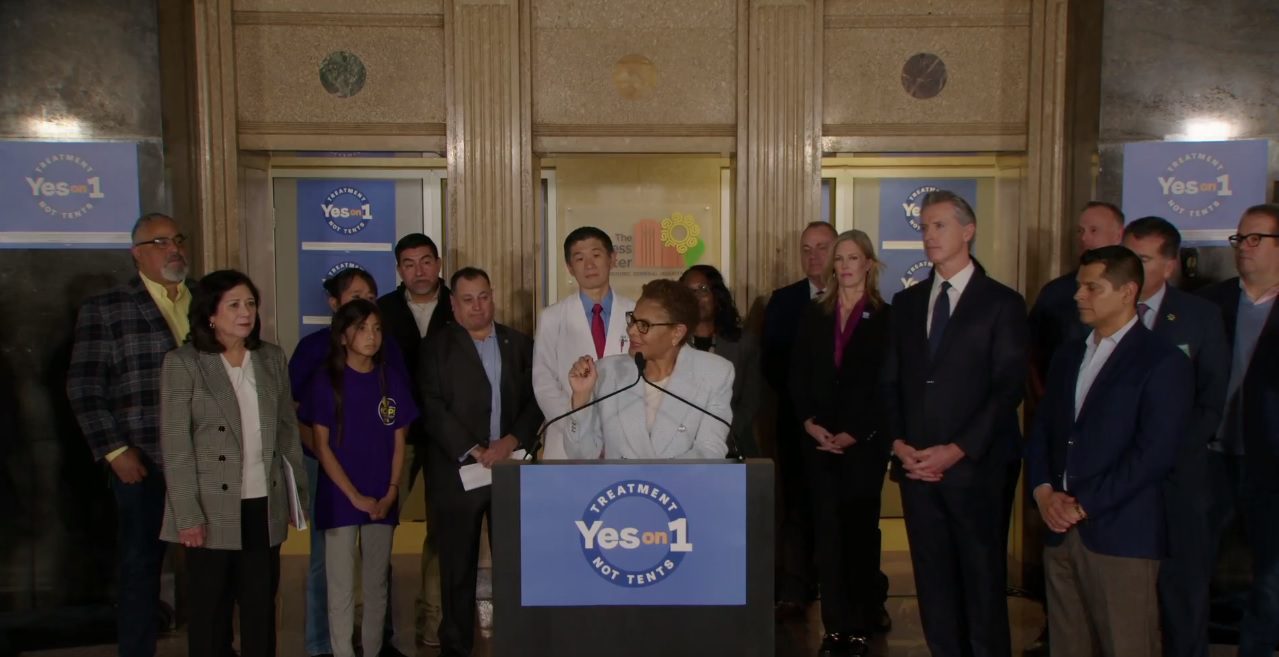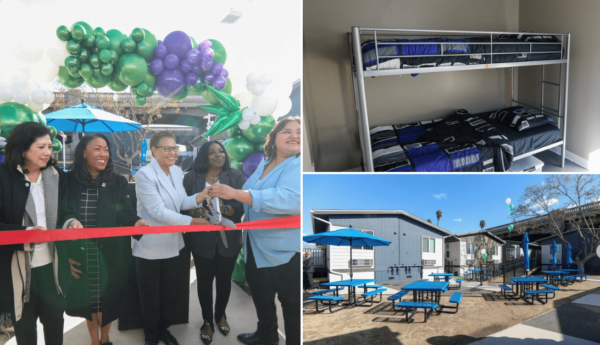Gov. Gavin Newsom, Los Angeles Mayor Karen Bass and other local officials Wednesday formally began a campaign in support of a $6.38 billion measure on the March ballot proponents claim will fund thousands of mental health treatment beds and supportive housing across the state.
Speaking at Los Angeles General Medical Center in Lincoln Heights, which the county is working to transform into a housing and treatment facility, Newsom insisted that Proposition 1 would fulfill a vision that began a half- century ago for a comprehensive statewide mental health treatment system that never came to fruition.
“We can make history,” Newsom said. “We can’t make up the last 50-60 years, but we can finally fulfill that vision that was set forth a half- century ago. This initiative, Proposition 1, promotes a number of things. It does not, however, promote the following — and that’s the status quo. If you’re for the status quo, vote no on Proposition 1.”
According to Newsom’s office, the proposition, if approved by a majority of the state’s voters, would create 11,150 behavioral health treatment beds across the state, along with housing and 26,700 outpatient treatment slots. Roughly $1 billion of the bond measure would be earmarked specifically for veterans.
Bass also insisted that the measure would correct years of failure to address the mental health crisis in the state, echoing comments made at the event by Los Angeles County Sheriff Robert Luna.
“When I listened to the sheriff talk about the nation’s most expensive mental health institution, which is the county jail — for anybody that was hesitant on voting for Proposition 1 because it costs a lot of money, just think of how much money it costs to incarcerate people, and think of how inhumane that is.
“… Think of how much money would be saved when Proposition 1 is passed and there’s actually facilities for folks, we get people off the streets. We know that addiction and mental illness is a contributing factor to homelessness. … We cannot separate these problems, and it is not enough to get a bed for a person. We can get people off the street, we have demonstrated that people are willing to come off the street. But you have to address why they were unhoused to begin with. And you have to have a comprehensive approach, and Proposition 1 is a step forward in that direction.”
Los Angeles County Supervisor Hilda Solis was also on hand for the campaign kickoff event, saying the proposition would be a “beacon of hope for nearly 76,000 Angelenos” that will “provide significant resources to affect the transformative vision of this iconic asset (L.A. General Medical Center) and a model to replicate nationwide.”
The measure will go before voters on March 5.
Opponents of the measure, a group known as Californians Against Proposition 1, deride the measure as “huge, expensive and destructive,” saying it would cost taxpayers more than $9 billion over the life of the bonds, while ordering the redirection of $30 billion in existing mental health services funds in the first decade, “cutting existing mental health services that are working.”
“Prop. 1 breaks promises made by the voters when they first passed the Mental Health Services Act in 2004,” according to the opposition group. “The idea then was to create permanent, dedicated funding for long-neglected mental health services, including prevention, early intervention, programs for youth, programs for struggling and under-served populations, including racially and ethnically diverse groups and LGBTQ people. The MHSA is a proven model, offering `anything it takes’ to help individuals who need a range of services.
“Now, Prop. 1 would sharply reduce that funding, end its dedication to mental health programs and take a hatchet to dozens of programs across the state that cannot survive without MHSA funding. It orders counties to do more with less.”







